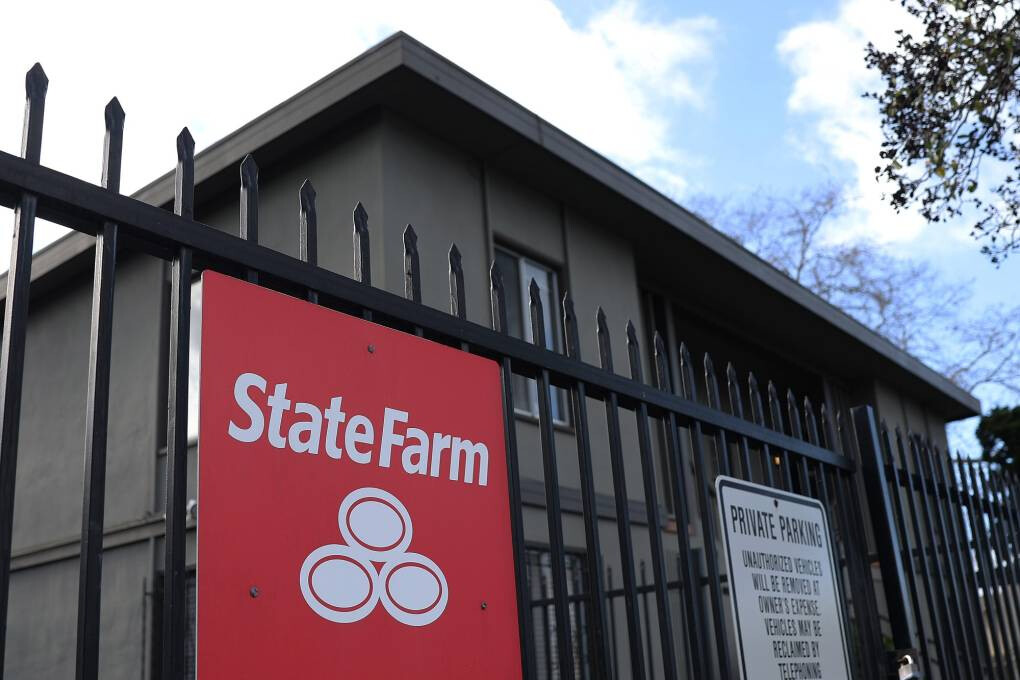
Oakland, CA - The future of State Farm, the nation's largest home insurance provider, hangs in the balance as it aggressively pursues a substantial increase in insurance premiums for California homeowners. This move comes in response to severe financial strain stemming from the unprecedented Los Angeles (LA) wildfires that ravaged the region earlier this year. An ongoing administrative hearing in Oakland is poised to be a pivotal moment for the insurance giant.
State Farm General, the California arm of the insurer, is vigorously arguing its case for the rate hike before an administrative law judge. This follows a preliminary approval of their urgent request by California Insurance Commissioner Ricardo Lara.
Drawing a stark analogy, Nicki McKennedy, representing the California Department of Insurance, likened State Farm's precarious situation to the Titanic heading towards an iceberg. "The iceberg is in sight, but there is still time to turn the ship," she warned during the hearing. "Failure to do so will leave three million Californians adrift, with not enough lifeboats to save them."
The historic LA wildfires in January inflicted an estimated $250 billion to $275 billion in damages, according to AccuWeather, making it the costliest natural disaster on record.
State Farm General, which covers approximately 20% of California's homeowners with nearly three million policies, has already paid out over $2.75 billion on roughly 12,390 claims related to the LA fires. While direct losses are projected to be around $7.6 billion, reinsurance is expected to mitigate the actual loss to approximately $612 million.
Initially seeking a 22% rate increase in February, State Farm has since revised its request to 17% for homeowners. The company is also seeking a 38% increase for landlord policies and a 15% hike for renters' insurance.
Attorneys for State Farm General revealed during Tuesday's hearing that the company plans to secure an additional $400 million in capital from its parent corporation if the rate increase is approved.
The financial headwinds facing State Farm's California operations were further underscored by S&P Global's decision in February to place the subsidiary's AA credit rating on "negative watch," citing a five-year track record of weak underwriting and a deteriorating capital position.
Even before the catastrophic LA wildfires, California insurers have been grappling with escalating losses due to the increasing frequency and severity of natural disasters over the past decade. Insurance Commissioner Lara, who is directly accountable to voters, has historically been cautious about approving significant rate increases for both home and auto insurance.
Data from the Insurance Information Institute indicates that California insurers are currently paying out more in claims and operating expenses than they are receiving in premiums. This unsustainable trend has led numerous insurers to either limit new policy offerings or decline to renew existing contracts.
State Farm itself had already suspended writing new homeowners policies in California in May 2023. In 2024, the company further decided not to renew 72,000 policies, including 30,000 homeowners and 42,000 commercial apartment policies, citing financial instability and escalating risks.
During the administrative hearing, economist David Appel painted a grim picture of California's insurance market, characterizing it as unsustainable and rapidly declining. He highlighted the dramatic surge in the size of the state's FAIR plan, the insurer of last resort for those denied coverage, while noting its woefully inadequate capacity.
In response to the growing crisis, California has developed a "Sustainable Insurance Strategy" that would allow insurers to incorporate catastrophe modeling and reinsurance costs into their rate calculations, aiming to streamline the rate approval process.
Janet Ruiz of the Insurance Information Institute emphasized that the implementation of this strategy this year is a crucial first step towards addressing the systemic issues plaguing the insurance market and stabilizing the situation in California.
Appel testified that the 17% emergency rate increase sought by State Farm would, in his assessment, contribute to the insurer's financial stability.
While the California Department of Insurance appears to support State Farm's request, consumer advocates are vehemently opposed. Consumer Watchdog, a prominent advocacy group, has strongly criticized the proposed rate hike.
"State Farm has failed to present sufficient grounds as required by law," stated William Fletcher, senior counsel for Consumer Watchdog, in a press release. "Their proposal lacks consistency. They initially demanded 22%, now it's 17%. While the reduction is welcome, the increase still requires justification, which State Farm has not provided."
The outcome of this administrative hearing is anticipated to have far-reaching consequences for the entire California home insurance landscape and could potentially determine the long-term viability of State Farm's operations in the state.
[Copyright (c) Global Economic Times. All Rights Reserved.]




























